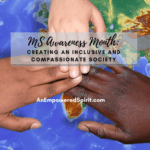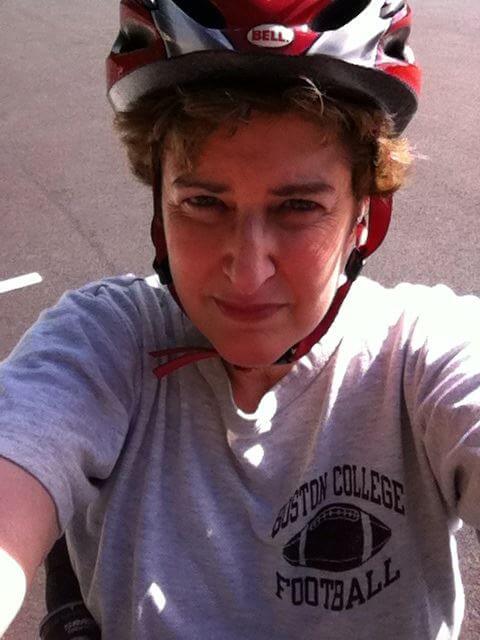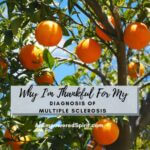As an advocate, I speak to people in the MS community every day. We chat about our disease and what itís like living with it. One wish I often hear is for the able-bodied community to better understand what...

As an advocate, I speak to people in the MS community every day. We chat about our disease and what itís like living with it. One wish I often hear is for the able-bodied community to better understand what itís like to live with MS.
In honor of Multiple Sclerosis Awareness Month, Iíll shed a little light on what itís like to walk in our shoes. †
 †
†
I donít know about you, but I think of my life in terms of chapters, except my chapters arenít arranged in numerical order. Instead, theyíre divided into two categories, before and after diagnosis.
Before my MS diagnosis, I could ride a bicycle for miles and miles. In the summer Iíd play softball, basketball, or kick-the-can from morning until sundown. When my husband, a devoted tennis player, and I were dating heíd give me tennis lessons. Of course, he beat the pants off me, but we always had fun.

Looking back I didnít realize what magical days those were.
Itís been a long time since I could run, ride a bike, or walk endlessly.† I miss those bygone days.

2014. I always felt so free on my bike.
No matter what ďtypeĒ of MS you live with life is constantly a challenge.† After losing any ability, such as walking, your days can be frustrating, maddening, and completely heartbreaking.
In time, some people can learn to live with their new normal while others canít. Itís a tricky road we travel. 
Over the years Iíve made a conscious effort to hold†Jon Kabat-ZinnĎs quote close to my heart:
ďThereís always more right with you than wrong.Ē
It sounds trite but it works for me to keep that beautiful sentiment in mind.
Zinnís wisdom gives me hope for better days ahead.† 
The way I figure it, no one escapes this life without facing some sort of adversity. MS was simply the hand I was dealt.
There are better days than others but when theyíre tough Iíve learned to meditate and focus on what I still can do.† †
I can work. I can speak. I can walk. I can swim. I can drive. I can stand. I can talk. I can laugh. I can dress. I can write. I can think.
And I can feel grateful for all of these blessings.† ††
![]()
I want you to know that whenever you see me youíre seeing the best possible version of me. I rest when my body tells me to, which is quite often, and I can safely say that most people in the MS community do the same.†

Some of us choose to take medications specifically designed for our MS (called disease-modifying therapies) to hopefully put the kibosh on disease progression. Some work for us, and some donít.
Weíre called the ďsnowflake diseaseĒ because no two people have MS alike, and none of us react to medications in the same way.††
We can feel okay one day (or days) and lousy the next day (or days).† Itís a very fickle disease!
Symptoms of MS can include pain, bladder, bowel and cognitive dysfunction, vertigo, weakness, numbness, optic neuritis, insomnia, dizziness, spasticity, fatigue, depression, and anxiety.
And the comorbidities that often accompany our MS diagnosis, such as various autoimmune diseases, gastrointestinal diseases, vascular and cerebrovascular diseases, chronic lung disease, and vision problems.
Instead of seeing us as an extension of our disease, I hope youíll look at us for who we are. We are made of beautiful hearts, souls, and minds.
Weíre so much more than what meets the eye.†

A bunch of MS advocates hanging out and having fun together! I love our community.
Thanks for listening and for taking positive steps toward creating a kinder, more inclusive, and compassionate world for everyone.

NOTE: Click MS RESOURCES at the top of this page to learn more about MS. Thank YOU
The post MS Awareness Month: Creating an Inclusive and Compassionate Society appeared first on An Empowered Spirit.











